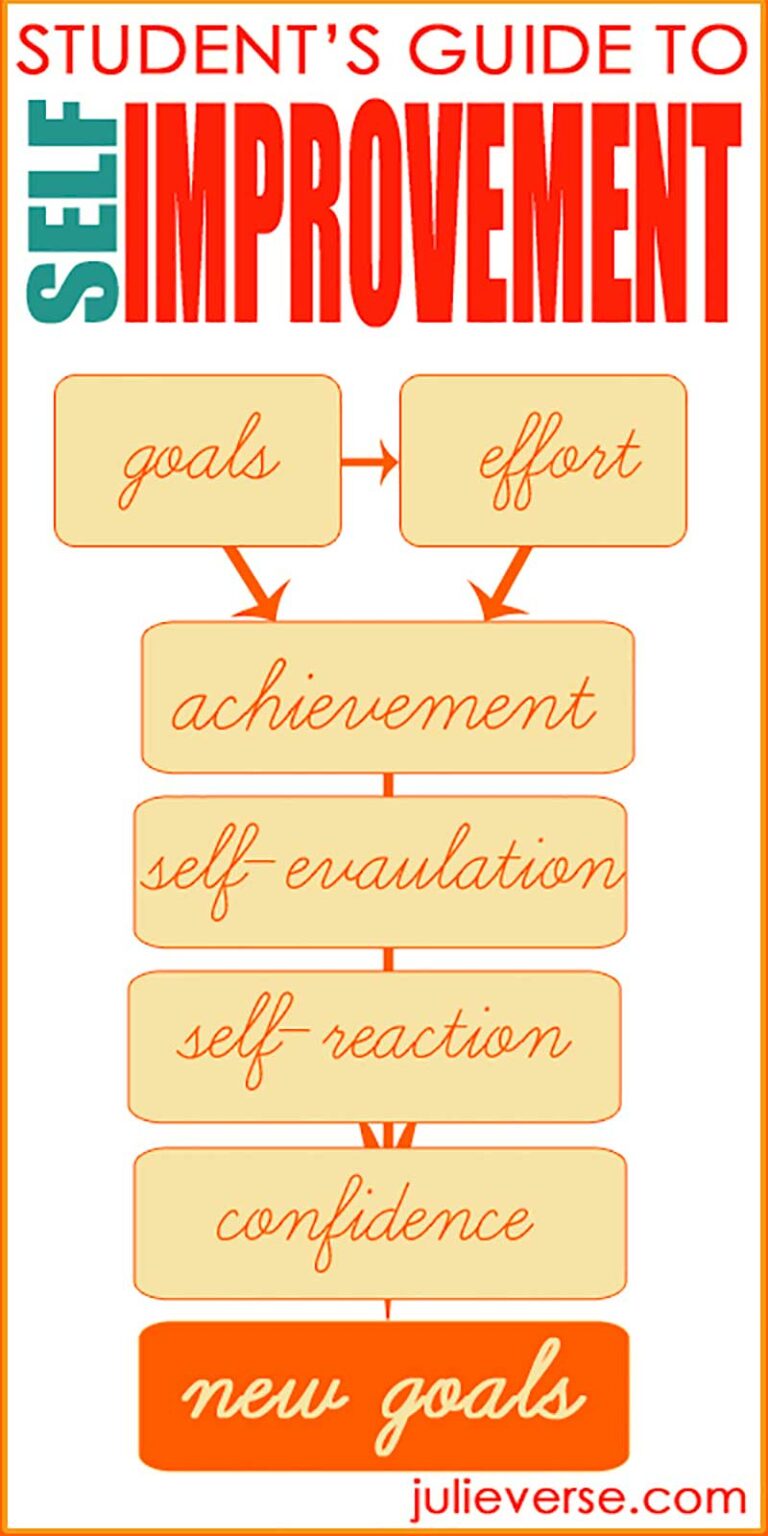After a break from school, students of all ages should look back over the past several months of learning and evaluate their growth. This family opportunity for discussion can easily occur over a shared meal, a drive in the car, or several snack breaks. Guided by parents with the right questions, students will be led to further goals that will increase their effort, eventually helping them to reassess, re-evaluate, feel confident in their growth and success and, finally, develop new goals. As the conversation continues, families will notice a healthy process of self-improvement. This process doesn’t just work for children but for adults as well.
Questions to ask your children in regards to academic success
- How has your participation been this year? (You’ll likely receive a one-syllable response.) Push further by asking your child more.
- When do you feel your participation in class has been strong/good/helpful?
- When have you lacked participation?
- Why do you think that is?
- Do you feel better participation will help you in school? Why?
- How can you have better participation?
Repeat this conversation, replacing participation with other academic and behavior elements such as studying, study skills, writing, reading, math, science, listening, homework, respect, responsibility, and classroom behavior. If there’s a specific area where your child has been focusing this year (perhaps calling out in class or taking turns), focus on that area for your discussion.
After some discussion, help your child to craft a goal for a given amount of time, anywhere from 1 day to a month, and then revisit the questions above. With reachable goals, children will learn success, build confidence and look forward to setting new goals.
Free self-evaluation printables
For visual learners, writing about goals and progress together will help children and parents to see and evaluate their progress and guide them to new goals. Use and adapt these free printables to help guide your conversations. Help your child answer the questions asked, then discuss what he’s doing correctly, what areas need improvement, and, together, set a new goal.
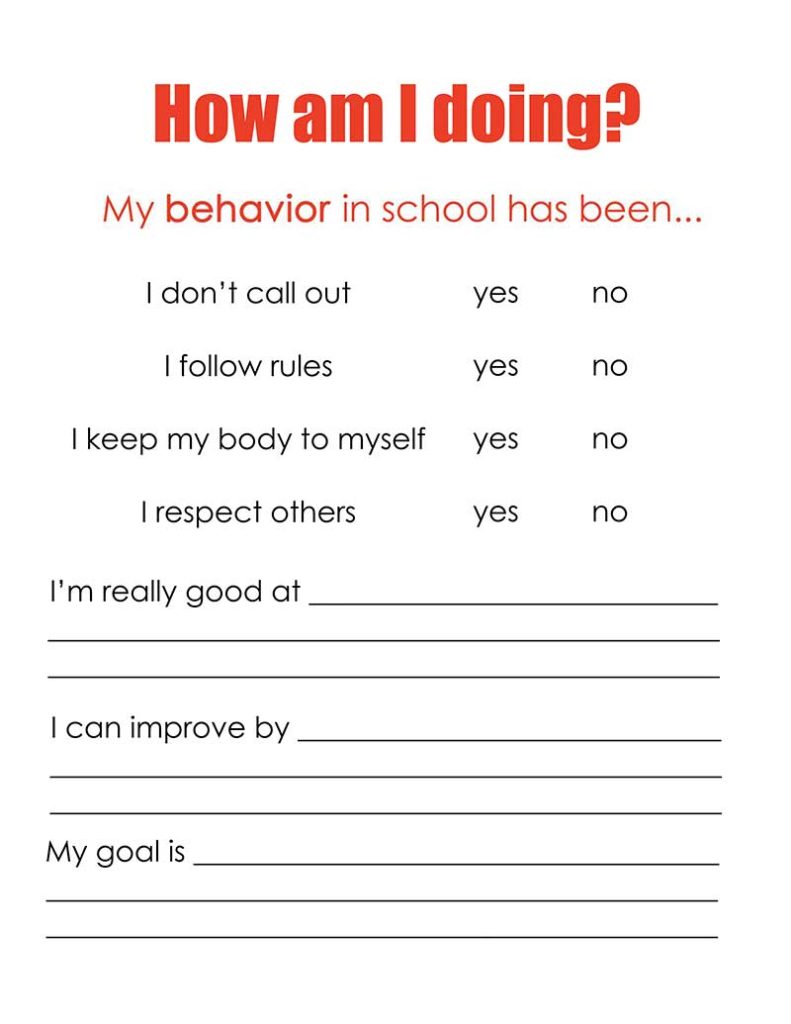
Self evaluation for behavior for elementary school students: Use this page to help your child evaluate his behavior in school (or at home), then discuss progress and set goals together.
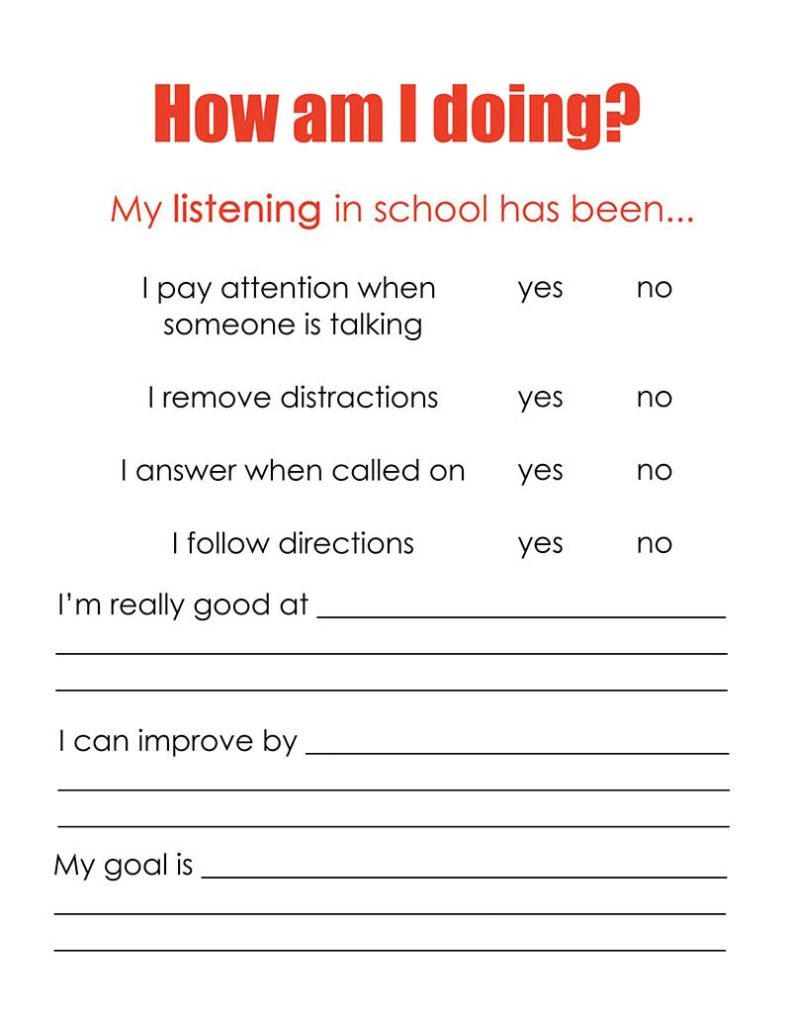
Self evaluation for listening skills for elementary school students: Use this page to help your child evaluate his listening skills at school (or adapt for at home), then set goals together.
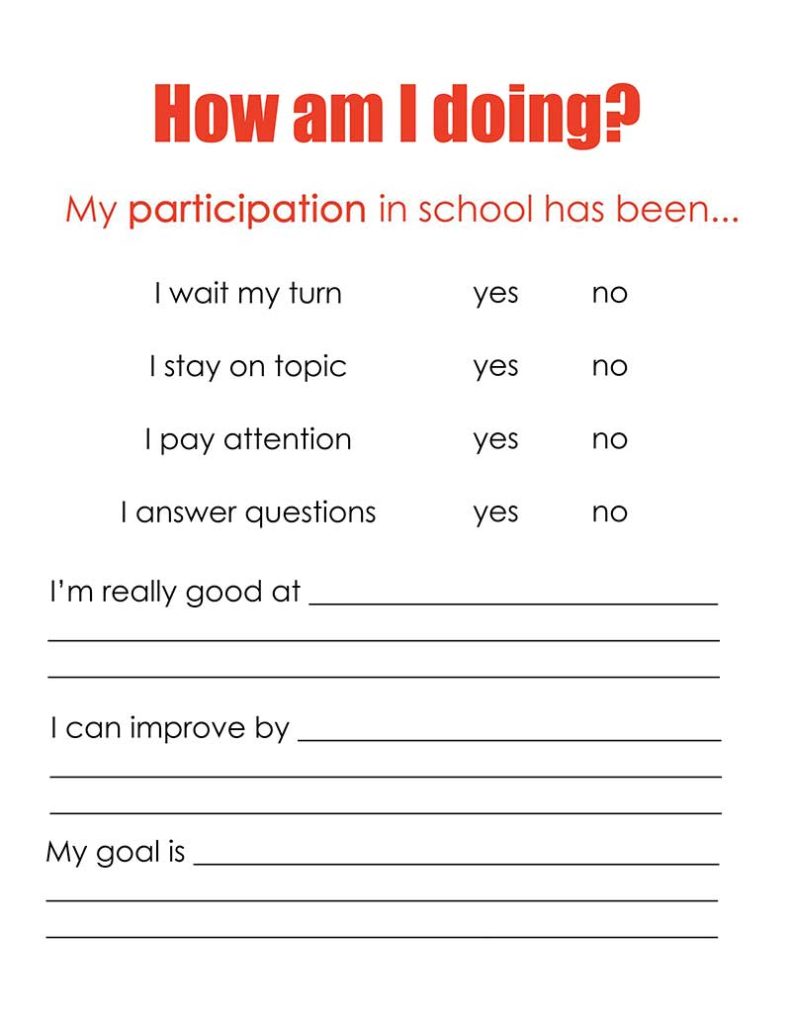
Self evaluation for elementary school participation: Use this sheet to help your child self-evaluate his participation in school and set a new goal.
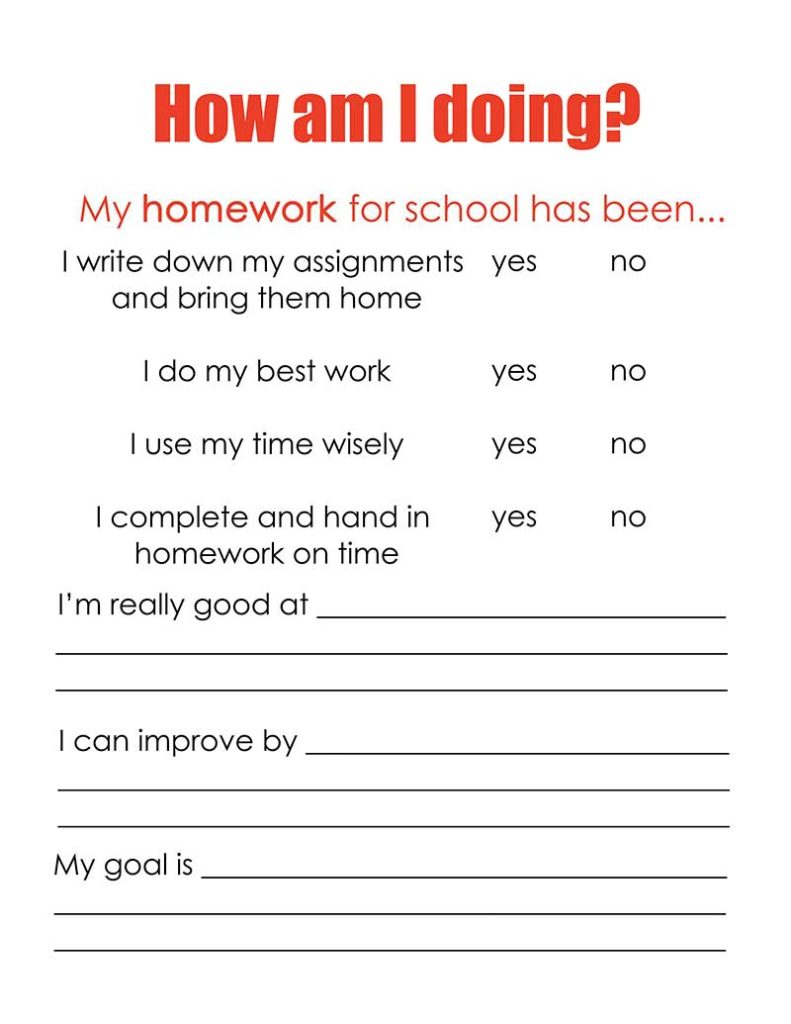
Self evaluation for elementary school homework: Use this sheet to evaluate and set new homework goals for the elementary-age child.
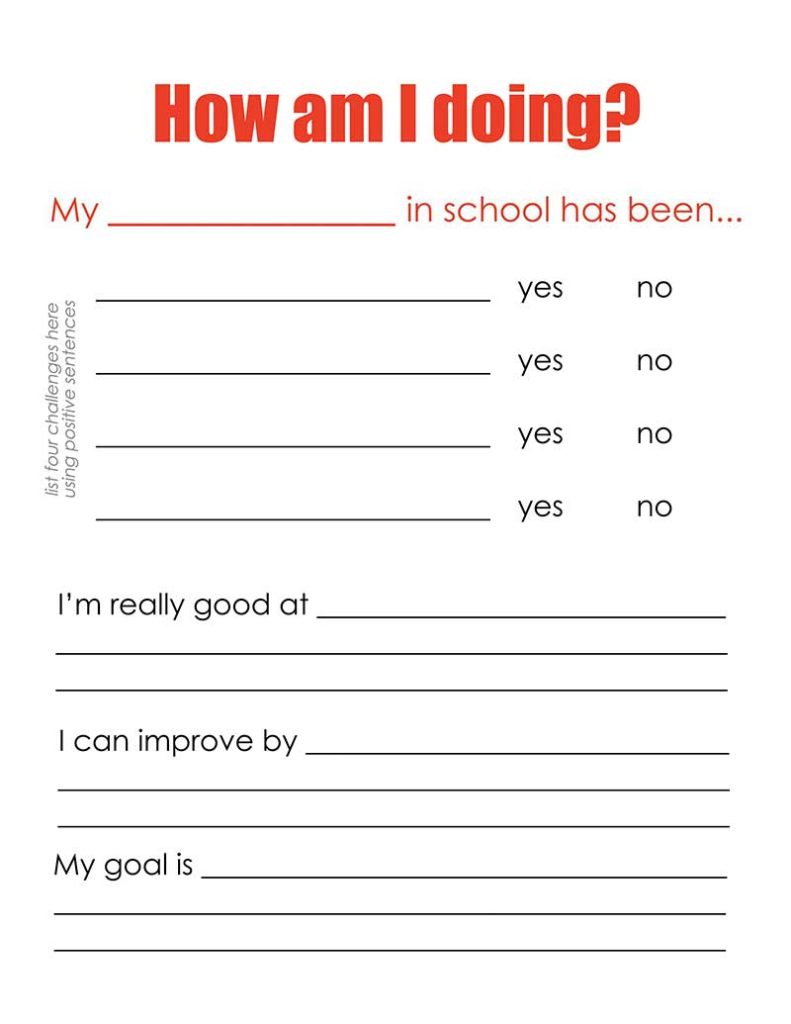
Self evaluation fill-in-the-blanks printable: use this form to create focus on personal goals, personal behavior goals, or specific subject matter.





